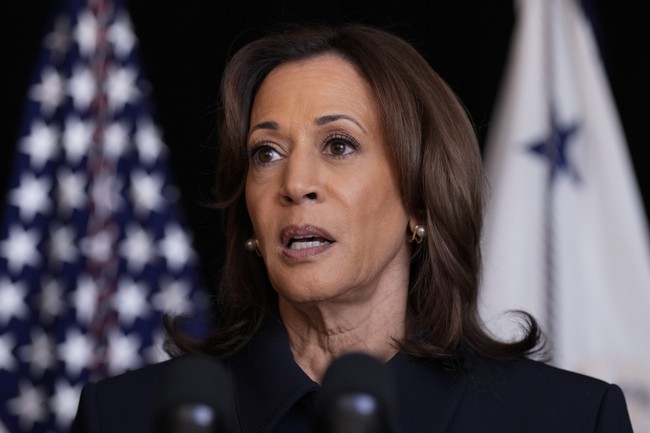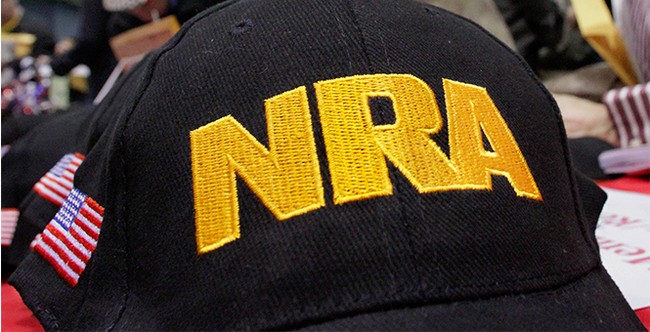Why is it that the politicians keep referring to America as a “democracy”? How many times have we heard that former President Donald Trump is “threat to democracy”?
Well, yes, we are a democracy. We vote in and out of office our politicians.
But more importantly, we are a republic. This is basic civics: Our forefathers set up myriad checks and balances to protect against majority rule and to safeguard the right of the minority. We have three branches of government. We have two houses of Congress. We have a presidential veto to repel bad laws. We have a Supreme Court to strike down laws that violate the right of our citizens.
We have 50 states that make their own laws. These are all safeguards against tyranny.
In short, we don’t have mob or majority rule in America. Sorry, 51% can’t impose their ironfisted rule on the other 49% — thank God.
Now we have Vice President Kamala Harris and Democrats in Congress promising to end the filibuster in the Senate if they take power. This would allow a Democratic (or Republican) majority to steamroll through legislation with just 51 votes, not 60. It’s mob rule that endangers the rights of the minority. It would also make it easier for Congress to pass laws. We should want to make it harder given how many bad and invasive laws we live under today.
For the record, Republicans have tried this gambit when they’ve had majorities in the Senate. I made a lot of enemies when I came out against the Republicans for attempting to take this nuclear option several years ago. Even for appointments to the Supreme Court, it should take 60 votes, not 51, given the enormous powers conferred to these robed judges.
One of the most brilliant defenses of the filibuster comes from Sen. Mike Lee (R-Utah). He argued when Joe Biden was elected president that retaining the 60-vote rule in the Senate should be sacrosanct.
He noted that many Democrats “see the Senate’s 60-vote cloture threshold not as a prudent protection of minority rights, but as an anti-democratic obstacle to progress. … Former president Barack Obama — a prolific filibusterer himself during his Senate career — falsely derided the filibuster rule as a ‘Jim Crow relic.'”
But Lee warned: “The true purpose of nuking the filibuster, then, is not to ‘finally get things done’ or to ‘break through the gridlock’ or any other hackish trope parroted by the political press. Rather, it is to allow a Senate majority to pass partisan bills that aren’t politically compelling enough to attract bipartisan support.”
He warns Democrats that if they “nuke the filibuster,” they are being shortsighted. Republicans will use these same new rules to pass a “border wall,” education “reforms embracing school choice,” more gun rights, “laws to improve America’s election security and integrity” and so on.
I’d like to commend two Senate Democrats who put the republic above party. Joe Manchin of West Virginia and Kyrsten Sinema of Arizona were the only two Senate Democrats who heroically saved the filibuster two years ago.
That’s the good news. The bad news is that both will be gone from the Senate next year.
The Dems may sweep in November, or it may tilt to a wave for Republicans winning the political troika: White House, Senate and House.
Who in the Senate will take a principled position as Sens. Lee, Manchin and Sinema have done to prevent mob rule in Washington?
The filibuster is not in the Constitution. But as far back as the first years of our nation, George Washington called the Senate the chamber of Congress that would “cool” legislation coming from the House of Representatives. The Senate is supposed to be the most deliberative body ever invented. That can be frustrating for those who want dramatic change.
But bad laws passed in the heat of the moment are much, much worse than no laws at all.
Stephen Moore is a visiting fellow at the Heritage Foundation. He is also an economic advisor to the Trump campaign. His new book, coauthored with Arthur Laffer, is “The Trump Economic Miracle.”
Read the full article here




![Undecided Gen Z Voters Send MSNBC Morning Joe’s Host Off The Deep End [WATCH] Undecided Gen Z Voters Send MSNBC Morning Joe’s Host Off The Deep End [WATCH]](https://www.rvmnews.com/wp-content/uploads/2024/10/2024.10.11-07.21-rvmnews-67097ad65a41a.jpg)




